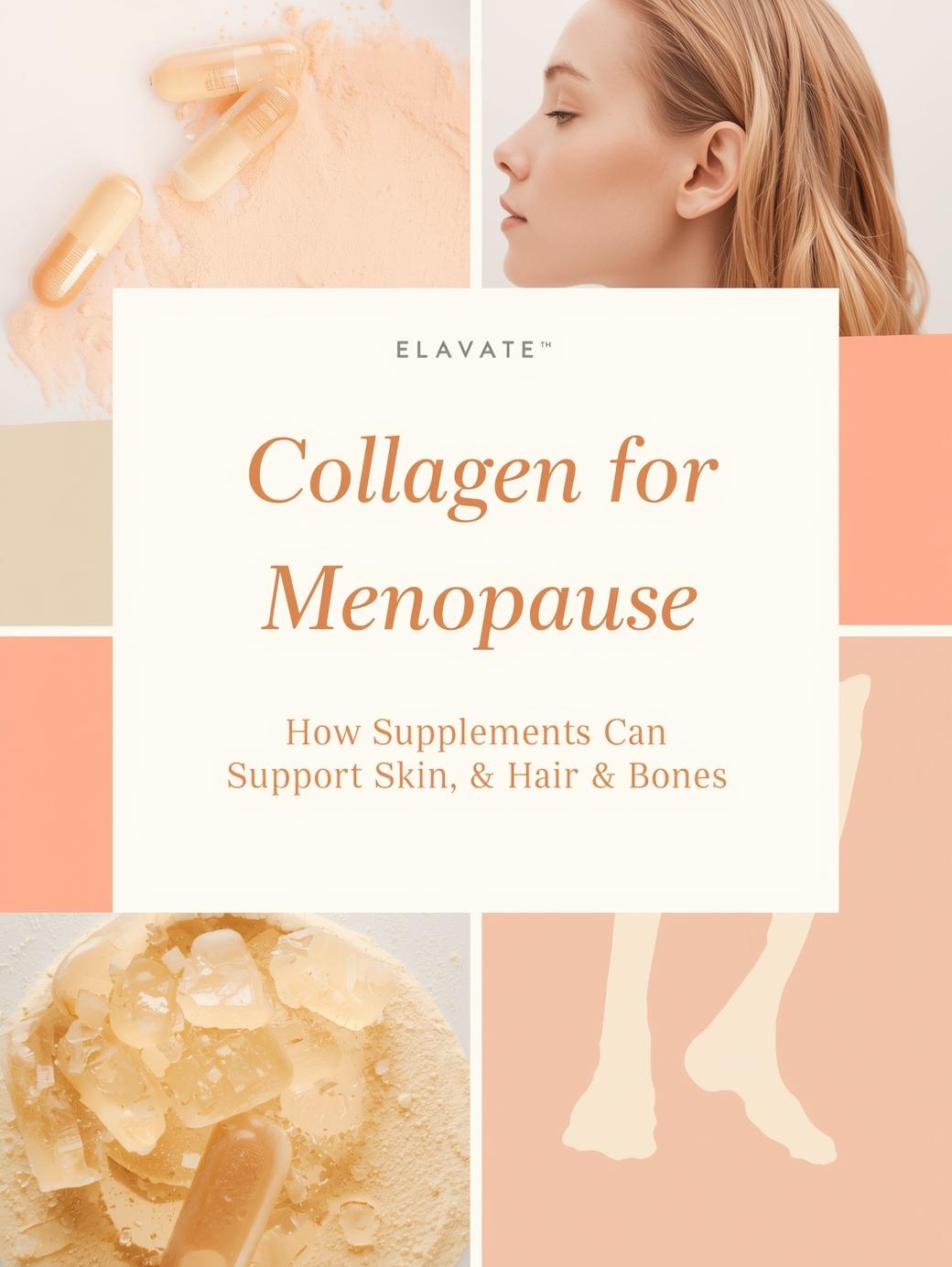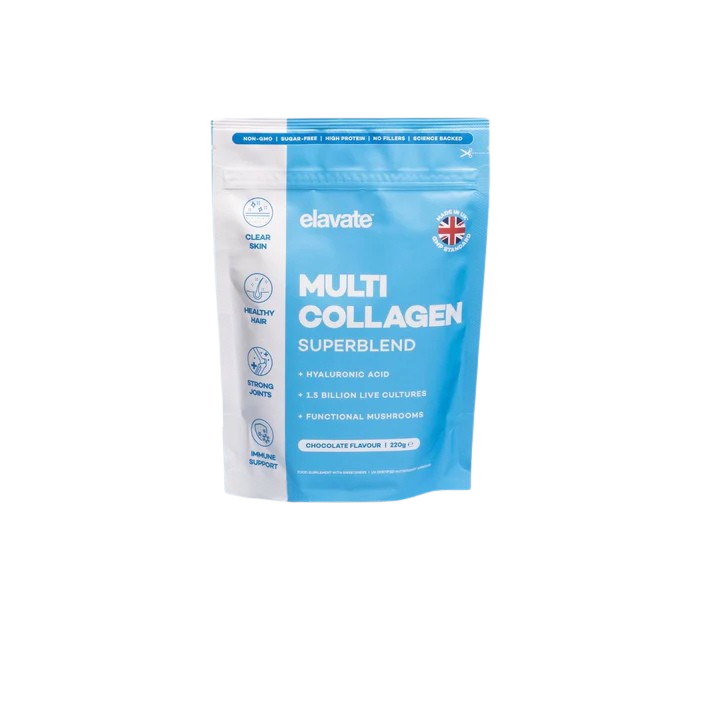Collagen for Menopause: How Supplements Can Support Skin, Hair & Bones
Discover how collagen supplements can support women during menopause by improving skin elasticity, strengthening bones, and promoting healthier hair, while also contributing to gut health and overall well-being.
Rebecca Brady
August 15 , 2025 — 4 minutes read
Menopause is a significant life transition, and understanding how to support your body during this time is key. Using collagen for menopause can be a beneficial strategy as your body's natural production of this vital protein declines. Hormonal changes during this period, particularly the drop in estrogen, directly impact collagen levels, which can lead to noticeable differences in your skin, hair, and even bone density. By exploring how collagen supplements can help, you can take a proactive step in managing these changes and supporting your overall well-being.
Elevate Collagen Levels to Counteract Menopause Skin Aging
One of the most visible effects of declining estrogen during menopause is accelerated skin aging. You might notice your skin becoming thinner, drier, and less elastic, leading to more pronounced fine lines and wrinkles. This is a direct result of reduced collagen, the protein that provides structure and firmness to your skin. As hormonal changes impact collagen synthesis, the skin's supportive framework weakens.
Supplementing with collagen peptides for menopause can help counteract these effects. These small, easily absorbed protein fragments can signal to your body to produce more of its own collagen. This helps replenish what's lost, leading to improved skin hydration, elasticity, and a reduction in the appearance of wrinkles. Think of it as reinforcing the very foundation of your skin from the inside out.
FAQ: Can collagen reverse deep wrinkles from menopause?
Answer: While it can't completely reverse deep wrinkles, collagen can improve skin hydration and elasticity, making them appear less prominent.
The Role of Collagen and Bone Health
Beyond skin deep, collagen is a critical component of your skeletal system. It forms the flexible matrix that minerals like calcium and phosphorus bind to, giving your bones strength and resilience. The hormonal shifts of menopause can disrupt this delicate balance, leading to a decrease in bone mineral density and an increased risk of osteoporosis. Maintaining strong bones is essential for staying active and independent as you age.
Incorporating a high-quality supplement can be a supportive measure for your bone health. Here are a few ways it helps:
-
Provides the building blocks your body needs for the bone matrix.
-
May stimulate bone-forming cells, known as osteoblasts.
-
Helps maintain the structural integrity that protects against fractures.
This makes focusing on collagen and bone health an important part of a comprehensive wellness plan during and after menopause.
FAQ: How long does it take for collagen to help with bone health?
Answer: Consistent use over several months to a year is generally needed to see potential benefits for bone density.

Addressing Hair Thinning After 40 and the Path to Complete Gut Repair
Hair thinning is another common concern for women over 40. Your hair follicles, like your skin, rely on collagen for strength and regeneration. As collagen levels decrease, hair can become more brittle, and the growth cycle can be disrupted, leading to noticeable thinning. Supporting your body with the right amino acids, the building blocks of protein found in collagen, can help fortify hair follicles and promote healthier, more resilient strands.
Interestingly, the journey to better hair and skin often starts in the gut. A healthy digestive system is crucial for absorbing the nutrients from your food and supplements. Some collagen formulations are designed to support not just your skin and bones, but also to promote complete gut repair. A healthy gut lining ensures you can effectively absorb the collagen peptides you're taking, maximizing their benefits throughout your body. By nurturing your gut health, you create an environment where nutrients can be efficiently utilized to elavate your wellness from head to toe.
FAQ: Can collagen help with gray hair?
Answer: There is no strong scientific evidence that collagen supplements can reverse or prevent gray hair, which is primarily determined by genetics and melanin production.
Making an Informed Choice
Navigating the changes of menopause involves a holistic approach to your health. When your body’s natural collagen production slows, a high-quality supplement can provide targeted support where you need it most, for your skin's elasticity, your hair's strength, and your bones' density. By understanding the connection between hormonal changes and collagen, you can make empowered decisions to nurture your body through this transition and beyond, helping you feel vibrant and strong.







